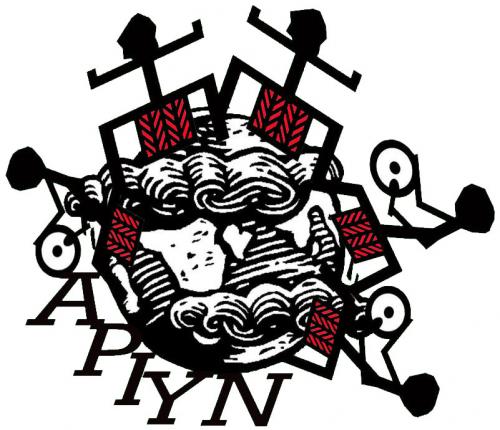12th Session of the United Nations Permanent Forum on Indigenous Issues (UNPFII)
Agenda Item 3 (c): Culture
Presented by: Julius CeasarDaguitan
Asia Pacific Indigenous Youth Network (APIYN)
Kablaaw kadakayo(Greetings to everyone)
Ina, ama, agtutubo(Mother Fathers and youth)
Mangibagi ti Tignayan(Representing the Movements)
Organisasyon ti Nainsigudan (and Organization of the Indigenous Peoples)
Mr. Chairman, Experts of the UNPFII and fellow indigenous brothers and sisters:
I am grateful to present to the body the position of the Asia Pacific Indigenous Youth Network (APIYN) on the Agenda Item 3 (c) on Culture that was collectively formulated at the Weaving Perspectives: Converging the Indigenous Youth Initiatives and Capacities in Advancing Indigenous Peoples’ Rights in Baguio City, Philippines last April 18-25, 2013.
Indigenous Peoples worldwide live in harmony with nature to include the lands, water, forests and all living creatures within. Through their engagement with nature, they developed their traditional systems of management that is sustainable, their spirituality and culture and established their identity as Indigenous Peoples while observing a deeprespect to Mother Earth.
However, when colonization reached the indigenous territories, their lands and natural resources were exploited and the inhabitants were forced to be assimilated to the mainstream culture thus forcing them to lose their identity and inherent rights as Indigenous Peoples.
Up to this day, the IP culture and practices are not appreciated and IPs are labeled as uncivilized and our culture and systems of management as backward and unsuitable to the modern world. The colonial and commercialized character of education also contributes to the disintegration of IP culture and values. The educational system in most states does not include and recognize the IP culture, tradition and practices. Instead, it misrepresents IP culture. Because there are very few or no secondary and universities in indigenous communities, many of the indigenous youth are forced into the mainstream society when they have to stay in urban areas for their education. As a result, indigenous youth are alienated with their culture. They are influenced with the modern and urban ways of life and started to feel that their culture is inferior resulting for them not to appreciate and proud of their own culture.
There is also wide inter-generational gap while minimal venuesfor the elders to impart the traditional culture, values and knowledge to the youth such as indigenous language, a very essential part of our culture.
Language is a very powerful tool for culture and development. As Indigenous Peoples, our language also identifies our distinct identity as peoples and we use this to easily transfer of our knowledge to our fellow IPs. It has been estimated that every two weeks a language disappears. One factor is the perception that other languages are superior to the indigenous language, and the states are promoting the other languages in the different institutions such as schools. In some schools in the Philippines, there are posts like “Speak English” or “English speaking zone only”. While in most countries in the region, they are commonly using their national language.
The continuous commercialization of culture also contributes to the fast disintegration of our culture. Our culture is being viewed as commodity and with it comes the bastardization of our culture. It is used to attract tourist for profit that only few will benefit and not the whole community. For the sake of profit, our songs, dances and traditional clothing areinappropriately presented. Others would also take advantage of the patenting laws and individually own the patterns, process, and designs which were used by our ancestors since time immemorial for profit.
The Indigenous youth therefore states and recommend the following:
1. For states and schools to review the modules, books and other educational materials that thwart the histories of Indigenous Peoples’ struggles and values and instead include in these materials the indigenous culture, knowledge and glorious histories.
2. For the educational institutions to use the indigenous language inside the schools.
3. For the mainstream media to stop using the indigenous culture inappropriately in their shows and programs. Instead, they should promote the proper culture of the IPs and their actual concerns.
4. We denounce the commercialization and bastardization of our culture. We will continue our campaign and activities on the revitalization of our indigenous culture. And we call on the states, UN bodies and concerned private institutions to support these initiatives of the youth.
5. We urgeour elders and indigenous families to teach their children their indigenous culture, practices, values and language. We believe that involving the indigenous youth in decision making, production, rituals and other indigenous practices in the communities is an effective and practical way of education.
As the current and future leaders of our indigenous communities, we the indigenous youth commit ourselves to end the culture of impunity,advanceour right to self-determination and reaffirm our role in defending our cultural heritage
Kultura Naisigudan (Our Indigenous Culture)
Saan Palubusan nga maawan (We shall not allow it to be lost)
Masapul entay adalen (We must learn)
Papigsaen padur-asen(Strengthen and develop it)
Agyamanak unay.Agbiag.(Thank you very much. Long live)
Help us spread the news! Download the document HERE and share it to our fellow indigenous youth!


